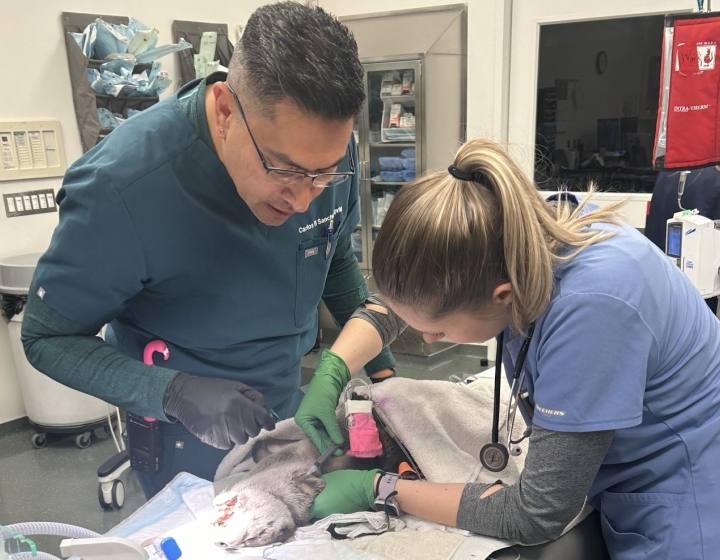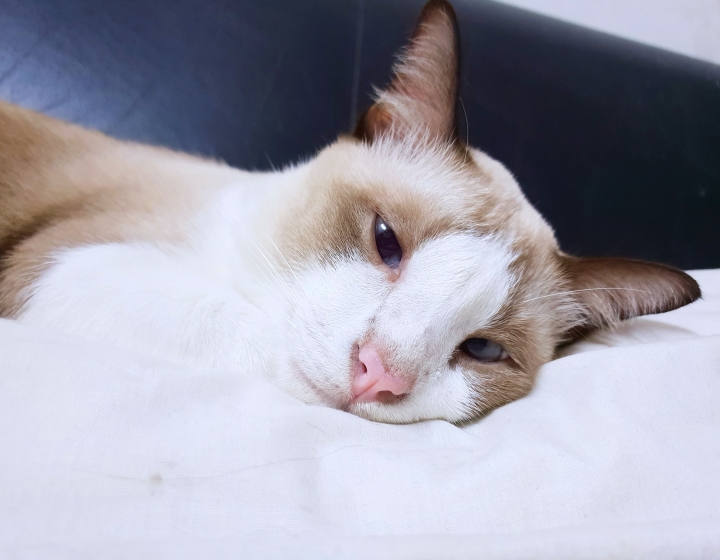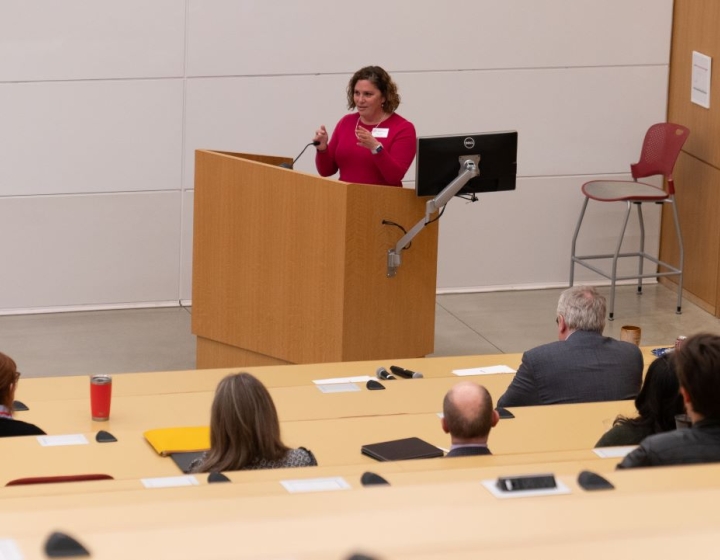Eight Cornell poultry pros get international honor
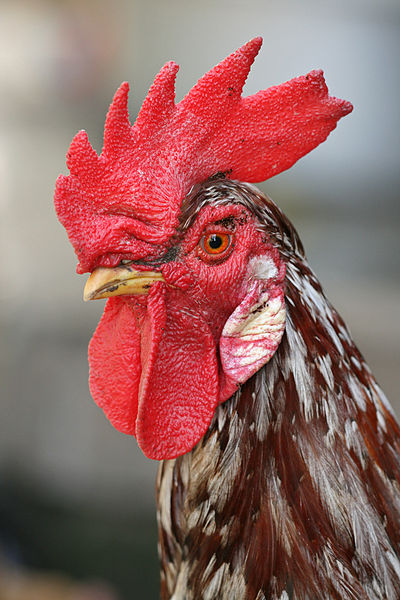 A newly created international honor befell six faculty and three alumni of Cornell University College of Veterinary Medicine chosen from among the world’s top veterinary poultry pros.
A newly created international honor befell six faculty and three alumni of Cornell University College of Veterinary Medicine chosen from among the world’s top veterinary poultry pros.
In June 2013 the World Veterinary Poultry Association’s (WVPA) named them and nine other inaugural inductees from the United States to be officially inducted into its new Hall of Honour in August 2013.
The honor distinguishes select veterinarians and poultry veterinary scientists whose contributions to the organization and to poultry health have been recognized as truly exceptional by their peers. Nominees were assessed by WVPA members for contributions to scientific research, poultry health education and training, professional communication, development of countrywide poultry health systems, and outstanding leadership and guidance to the WVPA.
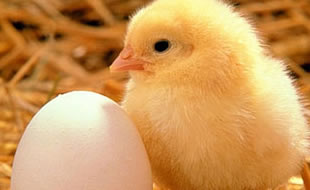 Fifty-two scientists worldwide were ultimately chosen for having contributed well over and above the norm in these areas and for actively progressing the international standing of poultry veterinary science. Of the 17 U.S. inductees, Cornell-related veterinarians swept the hall, making up nearly half of its inaugural cohort.
Fifty-two scientists worldwide were ultimately chosen for having contributed well over and above the norm in these areas and for actively progressing the international standing of poultry veterinary science. Of the 17 U.S. inductees, Cornell-related veterinarians swept the hall, making up nearly half of its inaugural cohort.
“We are excited to see Cornell so represented in this honor,” said Karel Schat, DVM, PhD ’78, faculty emeritus at the College and one of its eight inductees. “It gives testament to Cornell’s rich history and impactful legacy in the field of poultry health.”
The following current and former faculty and alumni of the College have been inducted:
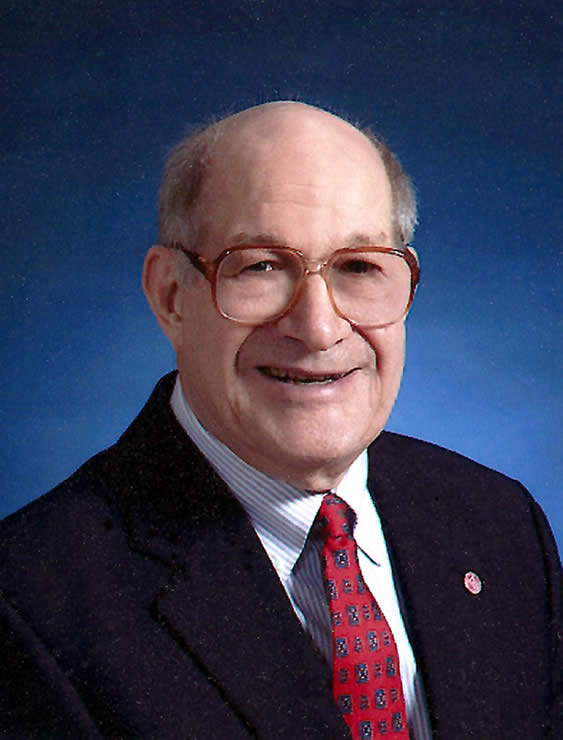
P. Philip Levine
MS ’32, DVM ’32, PhD ’37, late faculty emeritus, conducted research in the field of avian diseases that resulted in vastly improved methods of poultry production. His investigations were responsible for the control of coccidiosis, chronic respiratory disease, and duck virus hepatitis, and his work on mycoplasmal and viral diseases is well known to poultry pathologists throughout the world.
Julius Fabricant
VMD, PhD ’50, late faculty emeritus, is an icon in the field of avian diseases. Together with his mentor, Levine, he isolated the duck hepatitis virus that was devastating the duck industry on Long Island and developed methods for its control. His work on mycoplasma and chronic respiratory disease in chickens was particularly noteworthy: he and Levine perfected methods for the eradication of mycoplasma.
Bruce Calnek
DVM ’55, faculty emeritus, pioneered some of the greatest advances in understanding and combating Marek’s disease, a highly infectious disease of chickens and one of the most important to poultry health. He also served for years as editor-in-chief of Diseases of Poultry, a seminal textbook in the field.
Stephen Hitchner
VMD, late faculty emeritus, discovered a strain of the Newcastle disease virus in newly hatched chicks that resulted in its first vaccine protecting poultry flocks. He joined the College’s faculty in 1966 and served the department for 15 years. His research efforts resulted in the development of several new or improved vaccines, including those against canary pox and Pacheco's herpesvirus.
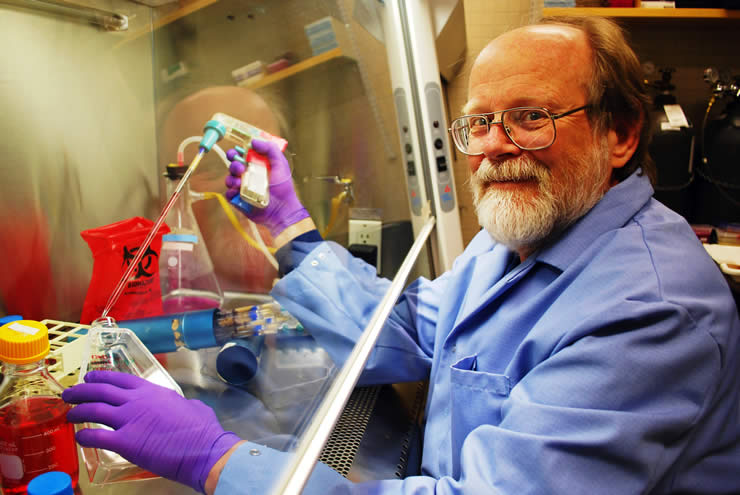
Karel Schat
DVM, PhD ’78 developed the SB-1 vaccine for Marek’s disease that prevents disease in countless chickens, ensuring the health of poultry and its consumers. His contributions to avian virology, especially Marek's disease and chicken infectious anemia virus, have spanned flocks and nations around the world. Recently he has been studying highly pathogenic avian influenza strains in a joint project to understand this emerging disease.
Benjamin Lucio-Martinez
DVM, late faculty emeritus at the College, worked in the Animal Health Diagnostic Center’s Poultry Diagnostic and Extension Services. An expert on diagnosis and control of poultry disease, he is known for his service work in commercial farms, backyard operations, bird markets, and pet birds. More recently he has conducted community education and preparedness services concerning avian influenza.
Hiram Lasher
DVM ’42 was a pioneer in the development of several avian vaccines and a generous benefactor of the College’s work in avian medicine. He was instrumental in developing and commercializing a number of significant vaccines through his own efforts and through cooperation with colleagues in industry and academia. He was intellectually active and participated in professional activities to the end of his life.
Richard Witter
DVM, PhD ’64 studied with three of the honored Cornell faculty before becoming a veterinary medical officer with the USDA-ARS-Avian Disease and Oncology Laboratory, where he researched Marek's disease, avian leukosis, and reticuloendotheliosis – the principal viral neoplastic diseases of chickens and turkeys.
J. Lloyd Spencer
DVM, PhD '69 has devoted his career to the control of virus induced tumor diseases of poultry. He served as President of the WVPA and ensured food safety in Canada through work at the Canadian Food Inspection Agency.



